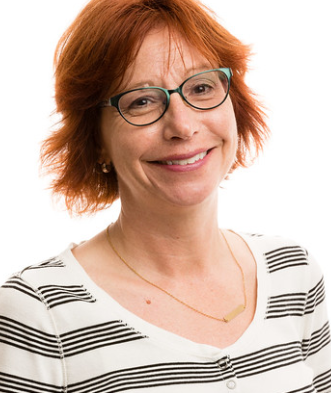With the continued support of ACS grant funding, the project entered its second phase in 2019 — “Pathway to Diversity: Curating Our Collections” — during which time each campus committed to completing the labor-intensive process of selecting, describing, curating, and digitizing the rare and unique archival materials uncovered in the first year of the grant. This work unfolded at Rollins with the help of two History classes – Dr. Claire Strom’s History Capstone (HIS 490) course and Dr. Brandon Jett’s Public History (HIS365) course – in the Spring of 2019. Throughout the semester, these classes spent many weeks immersed in our collections, sorting through documents and photos in search of answers about how integration happened at Rollins and what our campus community members experienced during those years of change.
The next eight blog posts have been created by student researchers from those two dedicated history cohorts – a total of eight junior scholars contributed. In an effort to provide a little context for these posts, I briefly explain each class’ archival research assignment below. Readers may notice that in addition to being quite diverse in topical focus and era, these students created a variety of finished products, ranging from more traditional formats like posters and essays, to digital humanities-style outputs like interactive timelines and curated online collections.
HIS 490 – History Capstone (Senior Seminar) Course, Dr. Claire Strom 
The talented seniors in Dr. Strom’s History Class spent ten weeks in the College Archives doing in-depth research on special topics relating to the history of racial diversity at Rollins. Students were tasked with developing a compelling historical narrative about the experience of integration at the College and then do a deep dive into all collection materials that touched on that topic over the course of several weeks. With the goal of creating an online collection of representative materials, students had to justify their sometimes-difficult artifact selection choices, and then learn both technical and descriptive standards to effectively digitize and transfer these important items to the web. The four central narratives explored by this class are: Desegregating Campus Spaces, Integration of Rollins Sports Teams, Early Rollins Leaders in African American Higher Education, and finally, Campus and Community Controversies Around Race Relations.
HIS 365 – Public History Course, Dr. Brandon Jett 
Dr. Brandon Jett’s students (HIS365) spent many weeks considering the value of archives as a public history practice; they learned about the “behind the scenes” work of building and sustaining a successful archival collection and they even wrote their own online finding aid. In addition, these budding historians were trained in how to approach an “unprocessed” archival collection, how to connect their collections with the local community, and how conduct an oral history interview, to name just a few of their learning objectives. In the last few weeks of class they were asked to choose a historical topic relating to the local and/or campus experience of integration and, after a good deal of research, present their findings in two formats – a public poster (now featured in the library font lobby) and an online digital timeline showing critical historical events alongside relevant media and artifacts. The topics chosen for these publicly-facing research projects were: African American Activism in Early Winter Park, The Formation of the Rollins Black Student Union (BSU), Biographies of the First Black Athletes at Rollins, and The Role of the Rollins Race Relations Committee.
See the next eight blog posts to browse all the final products created by both Dr. Strom and Dr.Jett’s Spring 2019 History classes. It is clear that all students learned a lot about both Rollins history and archival practice. The archives certainly looks forward to hosting more history classes in the future.